Before you jet off on your next big adventure, consider this: what if you left your phone behind? Not accidentally, but on purpose. In a world where our screens are our maps, cameras, translators, and entertainment hubs, the idea may seem radical—maybe even reckless. But ditching your phone for a trip, whether for a weekend or a week, can open the door to a more connected, immersive, and liberating experience.
So, take a deep breath, stash your phone in a drawer, and let’s walk through how to travel without it—and still love every second of the journey.
The Case for Going Phone-Free
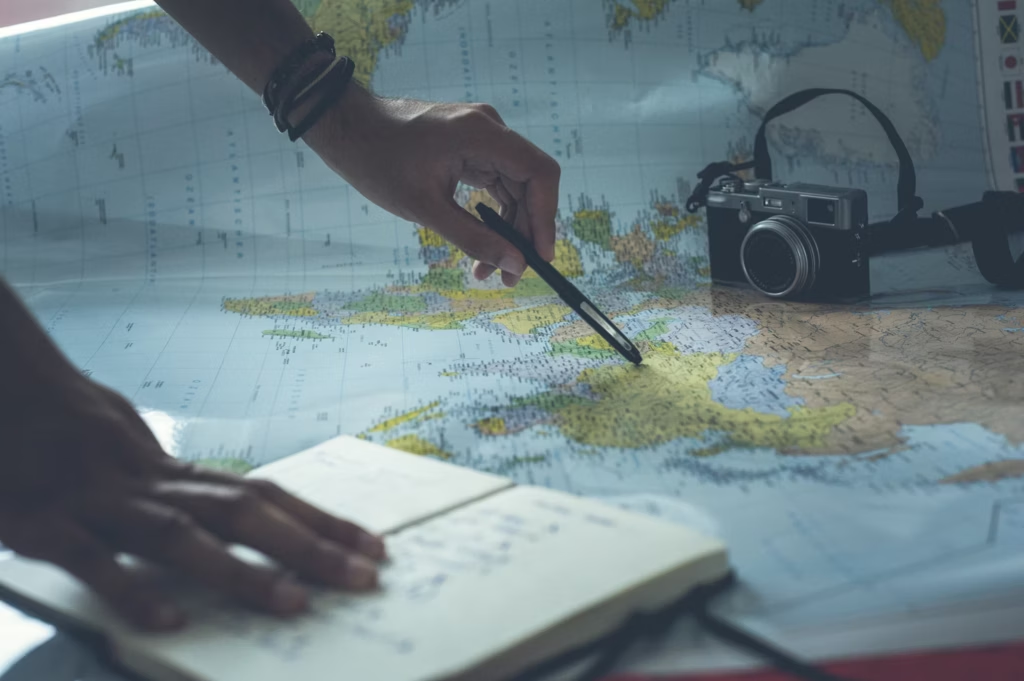
Let’s be honest: our phones are both useful and exhausting. While they help us find our way, translate menus, and capture memories, they also tether us to work emails, endless notifications, and the urge to scroll.
When you travel without your phone, you cut that tether. Your attention shifts outward—to the street performers, the scent of fresh bread from a corner bakery, the quiet rhythm of a city waking up. You notice more. You live more. Traveling phone-free is about presence, curiosity, and discovery—not just of a place, but of yourself.
Planning is the New Spontaneity

Before you say goodbye to your phone, say hello to good planning. Traveling without a phone requires a bit of preparation, but it’s worth every second.
Print Your Essentials
Having important documents and information in printed form can be a lifesaver, especially when you’re traveling in areas with limited internet access or unreliable phone signals. Here’s a list of items you should bring as printed copies:
- Flight and hotel confirmations: Keep hard copies of your travel itineraries, including flight details and hotel reservations, in case you need to show proof of booking or can’t access digital versions.
- Maps: Bring printed maps, such as a detailed fold-out city map or specific area maps, to help navigate unfamiliar places without relying on GPS.
- Transportation timetables: Have schedules for buses, trains, or other local transportation printed out to plan your travel more effectively, even offline.
- Emergency contacts: Write down emergency phone numbers, including family, friends, or local authorities, so you’re prepared in case of an emergency.
- Local addresses and key phrases: Carry a list of addresses for your accommodations or destinations, along with helpful key phrases in the local language, to assist with communication and navigation.
Write Down Important Info
In a small notebook, make sure to write down important details to keep handy during your travels. Here’s what you should include:
- The address and phone number of your accommodation, so you can always find your way back or contact them if needed.
- Key public transportation tips, such as routes, schedules, or nearby stations, to help you navigate easily.
- Your planned itinerary, including destinations and activities, to stay organized and make the most of your trip.
- Essential phone numbers, such as your country’s embassy, local emergency services, and any other contact information you may need in case of emergencies.
Having it all physically written down may feel like a throwback, but you’ll be surprised how handy it is—and how safe it makes you feel.
Getting Around Without GPS
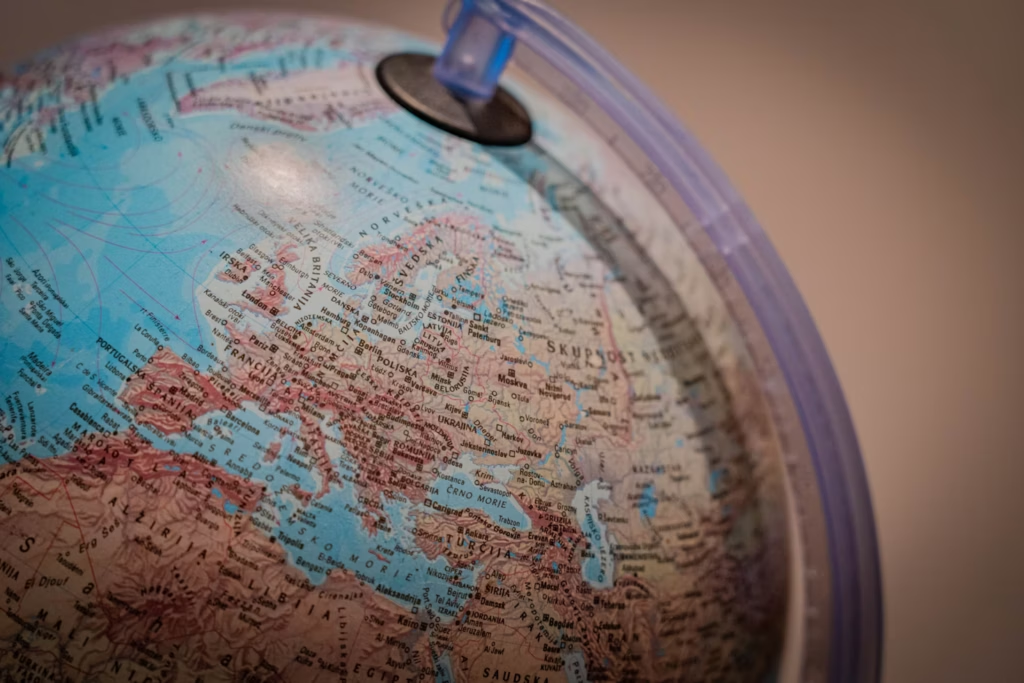
Traveling without GPS might feel unfamiliar, but it transforms every trip into a true adventure. By preparing a little and staying open to the unexpected, you’ll connect with places—and people—in ways technology can’t offer.
Use Physical Maps: Swap your phone for a paper map. You can find one at the airport, train station, or your hotel. Maps give you a big-picture view of your destination and are perfect for planning your day over coffee. Plus, locals love helping travelers with maps—it’s a great conversation starter!
Ask for Directions: Don’t hesitate to ask for help. Whether it’s through gestures, broken language, or a quick sketch, seeking directions creates a human connection that GPS can’t replicate. The journey becomes about more than just the destination.
Let the City Guide You: Skip the strict itinerary and follow your instincts. Walk toward music, explore a glowing alleyway, or follow the scent of fresh pastries. Often, the most memorable discoveries happen when you let the city take the lead.
Communication Without Constant Connection

Disconnecting from constant notifications can bring a new sense of intentionality to your interactions. By embracing slower, more thoughtful communication, you can make your connections more meaningful.
Inform Friends Before You Go: Let close friends and family know you’ll be off-grid. Share your hotel’s contact details for emergencies so you can unplug without worry.
Limit Wi-Fi Usage: If you need to check in, use Wi-Fi sparingly at your hotel or a local café. A quick email or message keeps communication purposeful without pulling you back into constant connectivity.
Send a Postcard: Postcards offer a personal, tangible way to share your journey. Writing one helps you reflect on your trip while giving someone back home a unique, heartfelt keepsake.
Photography Without a Phone
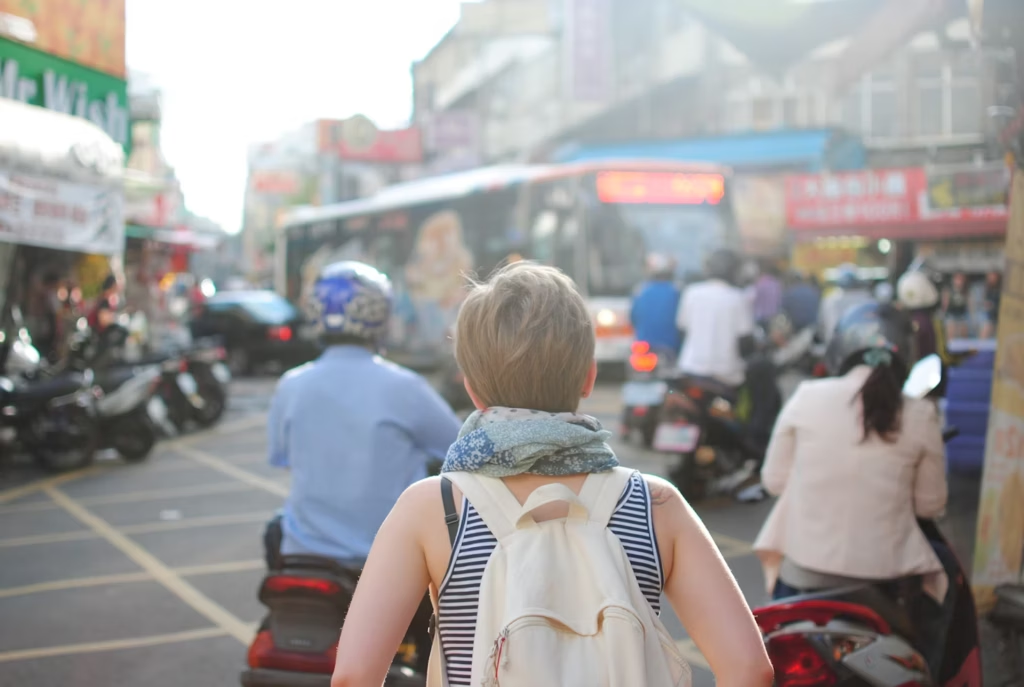
Seeing the world without your phone can feel strange at first, but it opens up a new way of experiencing and appreciating your surroundings. By slowing down and being intentional, you’ll discover beauty and meaning in unexpected places.
Bring a Film or Digital Camera: Swap your phone for a point-and-shoot or a retro film camera. This slows the pace and makes each photo more thoughtful. Instead of snapping selfies or food pics, you’ll notice the little things—a dog napping in the sun, the glimmer of raindrops, or a stranger’s unfiltered laughter.
Journal Your Memories: No need for a photo gallery. Keep a travel journal to capture your experiences through words. Write about the colors, smells, and sounds around you. Add sketches or collect keepsakes like ticket stubs or pressed flowers to make your memories even more vivid.
Embrace the Moment: Without the distraction of a phone, you’ll focus less on documenting and more on truly savoring each moment as it happens.
Staying Safe Without a Smartphone
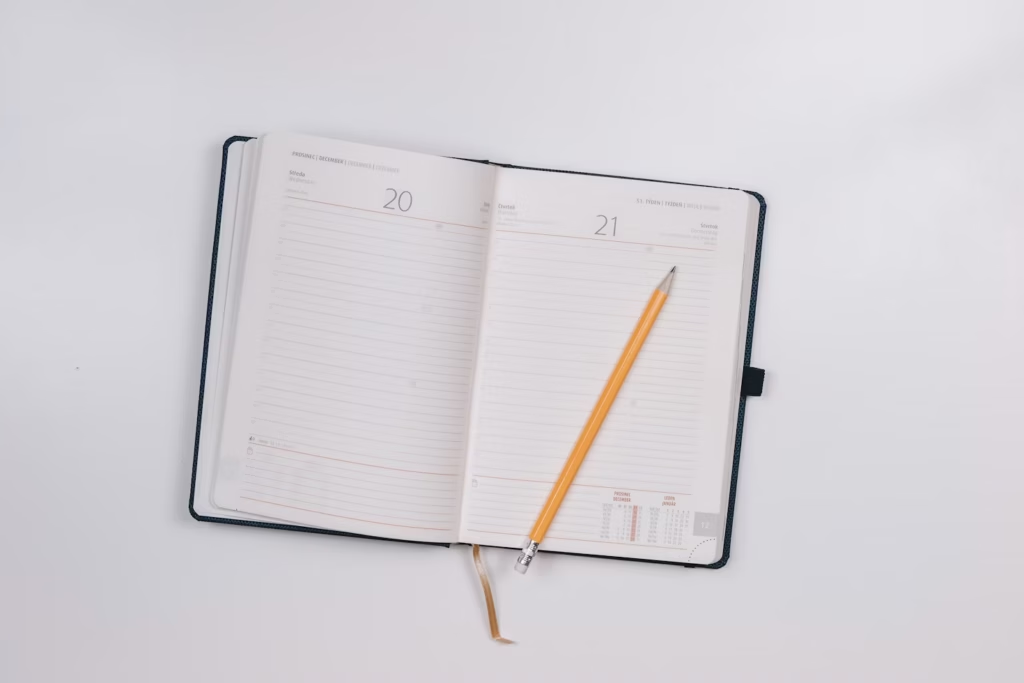
Traveling safely without a smartphone might seem challenging, but with a few mindful practices, you can explore the world confidently and securely.
Stick to Well-Lit Areas: At night, choose busy, well-lit streets and steer clear of unfamiliar or isolated places. If traveling solo, let someone at your accommodation know where you’re headed and when to expect you back.
Carry Emergency Contacts: Keep a small card in your wallet with essential emergency numbers, such as local emergency services, your accommodation, and the nearest embassy or consulate. It’s a simple way to stay prepared without relying on a device.
Trust Your Instincts: If something feels off, listen to your gut and remove yourself from the situation. Your instincts are one of the best safety tools available.
Socializing in the Real World
Socializing without a screen can feel unfamiliar, but it opens the door to deeper, more genuine connections. By being present and curious, you’ll find yourself connecting with locals, fellow travelers, and even passersby in surprising ways.
Join a Group Tour or Class: Cooking classes, walking tours, or workshops are perfect opportunities to meet like-minded people while learning something new. Without a phone in hand, you’ll be more engaged and approachable.
Stay in Communal Accommodations: Opt for hostels, guesthouses, B&Bs, or even book a hotel. These spaces naturally foster conversation. Chat over breakfast, swap stories with other travelers, or ask for their favorite spots in town.
Be Open and Curious : Start small: ask a question, compliment a stranger’s outfit, or help someone with their luggage. These simple acts of curiosity and kindness often spark the most meaningful connections.
Rediscovering Joy in the Unfiltered Experience

When you travel without a phone, you rediscover the simple joy of being somewhere new—really being there. You watch the world out the window of a train instead of checking your notifications. You sit with a coffee and people-watch, not scroll. You live with fewer distractions and more awareness.
You don’t need to document everything to remember it. You just need to feel it.
Final Thoughts
Choosing to travel without a phone isn’t just about leaving a device behind—it’s about reclaiming the way you experience the world. It’s about walking through a city with your head up, not down. About letting a moment be enough, even if it’s not photographed or posted.
Sure, it takes a little more effort. Yes, it’s a little uncomfortable at first. But somewhere between getting lost and finding your way back, between sharing a laugh with a stranger and journaling under a tree, you may just find something far more valuable than a good signal: a deeper connection to the world around you—and yourself.
So pack your bag, fold up that map, and leave your phone behind. The world is waiting—and it’s even more beautiful unfiltered.

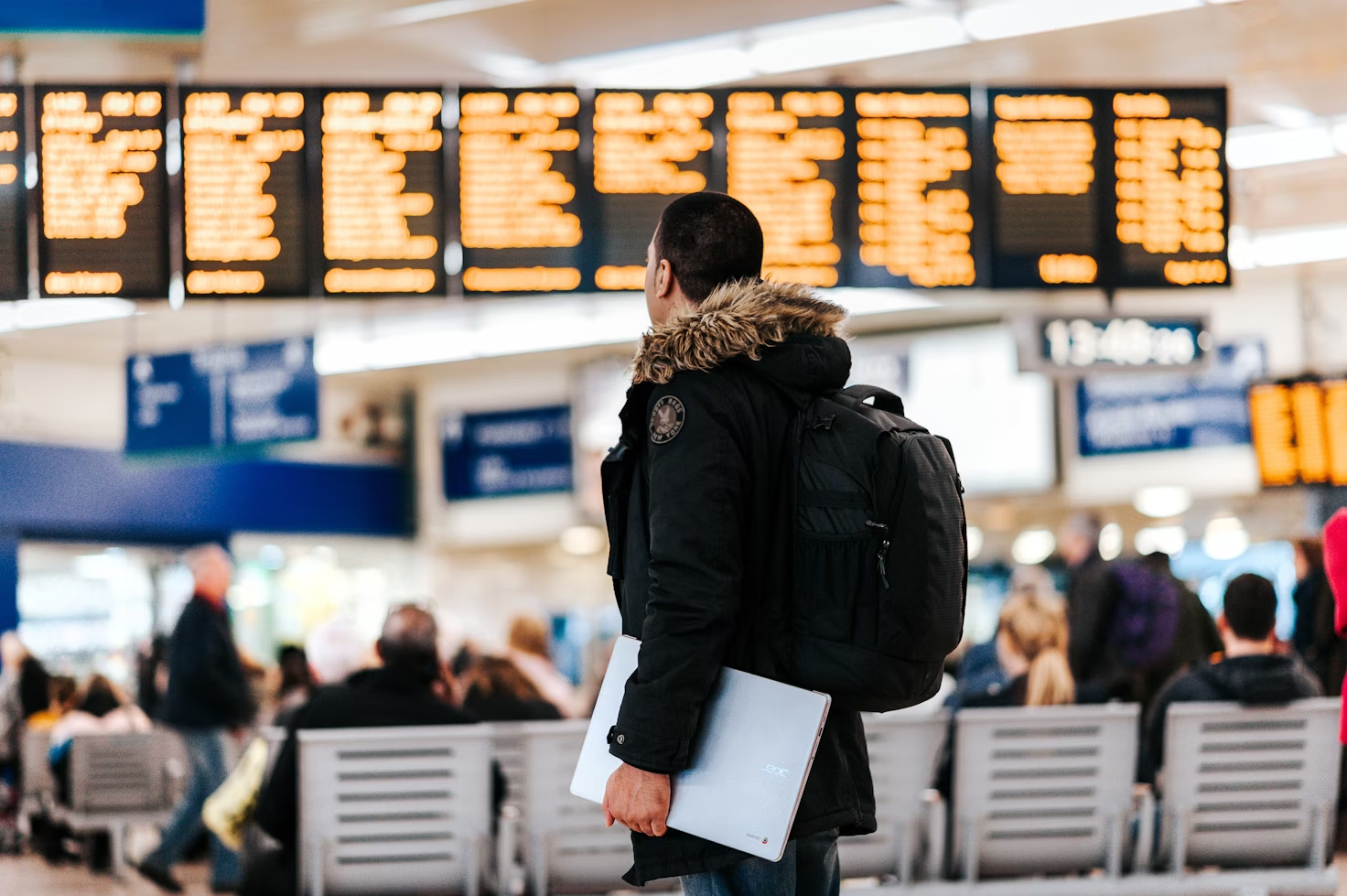


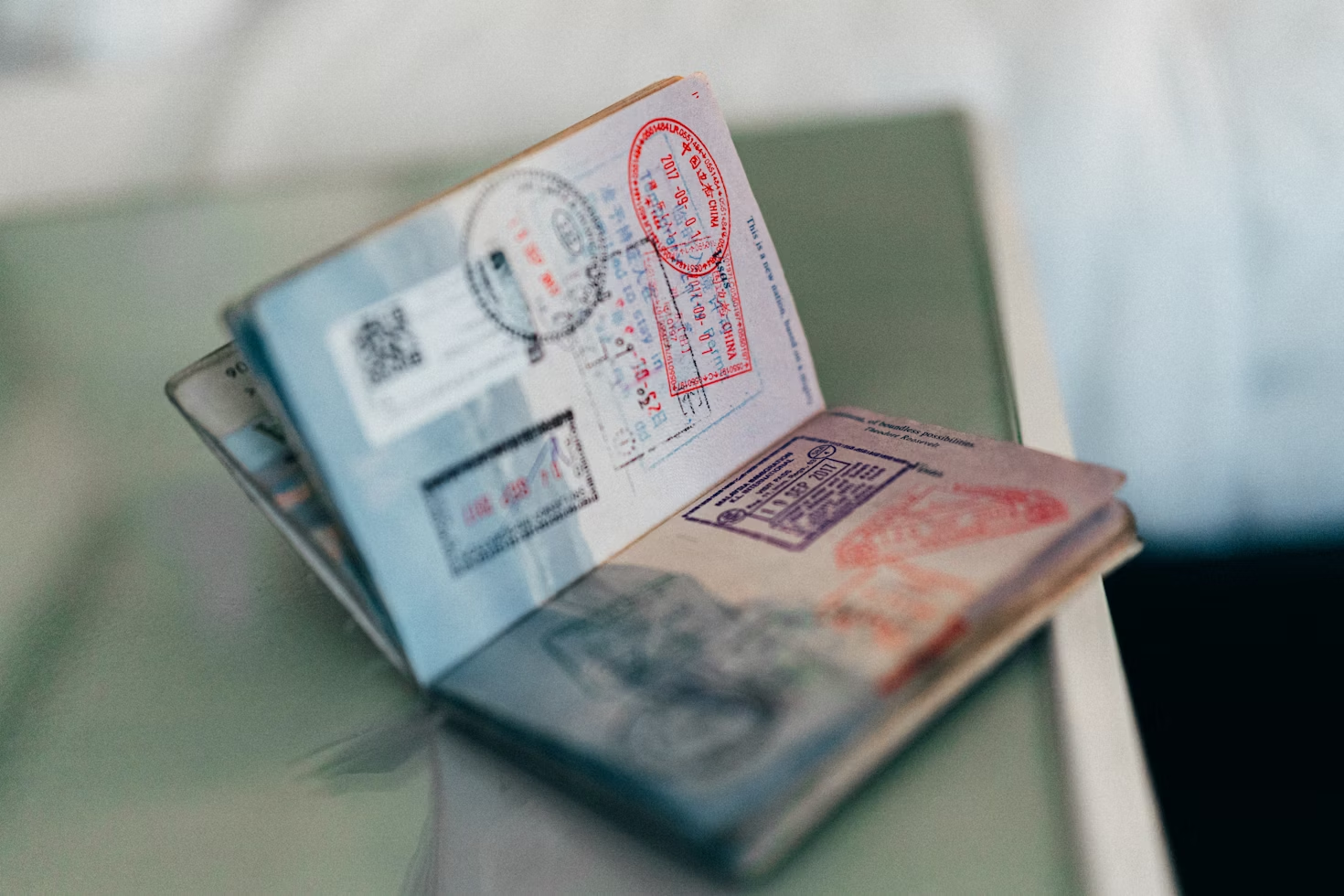

11 Responses
man, going without a phone sounds like a breath of fresh air, touristtales! been thinking about how glued i am to my screen. planning to just print stuff feels kinda old school but cool. might give it a shot for the vibes.
going phone free eh. not sure how I’d manage without my maps. gotta admit tho, the idea of not constantly checking notifications does sound kinda nice.
interesting take on living without a smart phone, but how do you deal with emergencies? kinda worried about the what ifs without GPS or a way to call someone.
Love the idea of writing things down again. There’s something special about pen and paper that a phone screen just can’t capture. Cheers to bringing back the old ways!
big yes to real-life socializing! feels like we forgot how to just hang without posting it all over the internet. gonna try this out with my crew this weekend.
idk how you manage directions without gps. like, do you use a map?? sounds complicated but maybe im just too used to my phone lol.
finding joy in unfiltered experiences sounds so magical, like we’re rediscovering the world all over again. I’m all for this adventure! 😊
While I see your point on going phone-free for a more authentic experience, I’m not convinced it’s practical for everyone. There are security issues to consider, especially in unfamiliar areas.
nothing beats the days of real photos you can hold. digital pics just don’t have the same soul. gonna dust off my old camera thanks to your article, touristtales.
Understand the vibe you’re going for, but my phone’s like an extension of my brain. Can’t imagine navigating life or schedules without it. Different strokes for different folks, I guess.
right there with you, trying to cut down on screen time. life’s got more to offer than swipes and likes.